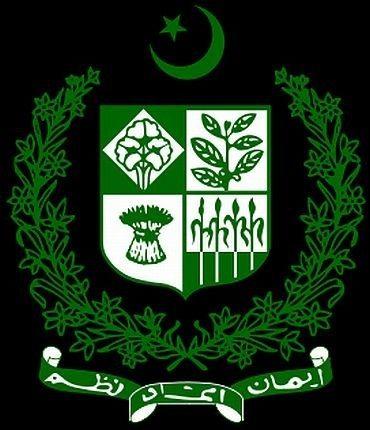
Pakistan's premier intelligence agency -- Inter Services Intelligence -- continues to face the ire of national and international human rights and media rights groups as the Judicial Commission investigating the May 2011 assassination of a senior Pakistani journalist Syed Saleem Shahzad has recommend that the ISI must deflate its larger-than-life image, focus on its mandated job and evolve a transparent policy in its relationship with the media. Amir Mir reports.
Expressing disappointment over the failure of Saleem Shahzad Inquiry Commission to get to the bottom of Shahzad's barbaric murder, the Human Rights Watch has observed that it illustrates the ability of the ISI to remain beyond the reach of the country's criminal justice system.
It added that the government should redouble efforts to find the killers. The five-member judicial commission, which was tasked with examining the murder and identifying the killers of the Asia Times Online's Pakistan Bureau Chief, said in its recent report that it does not have the evidence required to fix responsibility for the killing.
But the commission did describe Shahzad's fate as gruesome, adding that his murder has to be viewed in all probability with the war on terror as background.
"As an investigative reporter, Shahzad's writings probably did, and certainly could have, drawn the ire of all the various belligerents in the war on terror," observed the report of the commission while referring specifically to the Pakistani state, the non-state actors such as the Taliban and al-Qaeda, as well as foreign actors.
However, in its January 10, 2012 report submitted with the government, the judicial commission headed by Justice Saqib Nisar of the Supreme Court, conceded that during the course of the murder investigations, the police failed to question Pakistan's military intelligence officials.
Brad Adams, Asia director at HRW has stated in a January 30, 2012 press release: "The Commission appeared fearful of confronting the ISI over Shahzad's death. Shahzad had made it clear to Human Rights Watch that should he be killed, the ISI should be considered the principal suspect. He had not indicated he was afraid of being killed by militant groups or anybody else. [Thus], the government still has the responsibility to identify those responsible for Saleem Shahzad's death and hold them accountable, no matter where the evidence leads."
...
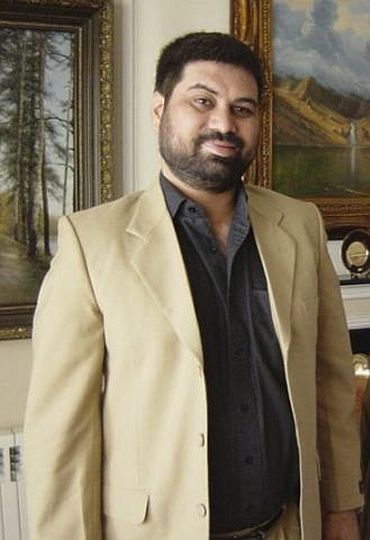
The HRW release said that the power of ISI over the Judicial Commission was evident from the fact that journalist Umar Cheema was not called to record his statements in the case.
To recall, Cheema was also abducted, tortured and then dumped 120 kilometers from his residence in Islamabad in September 2010. Cheema had subsequently blamed the ISI for his abduction. According to the HRW, it is inexplicable that the commission failed to seek Cheema's testimony despite his very public allegations against the ISI and repeated offers to testify before the commission.
"At great personal risk, scores of [Pakistani] journalists, human rights activists, and others presented themselves before the commission to offer accounts of ISI and military involvement in human rights abuses," Adams said.
"The commission repaid this courage by muddying the waters and suggesting that just about anyone could have killed [Saleem] Shahzad. ISI abuses will only stop if it is subject to the rule of law, civilian oversight, and public accountability. It is the government's duty to insist on such accountability and the military's duty to submit to it. The ISI needs to stop acting as a state within a state."
The HRW release claimed that the group had extensively documented the ISI's alleged intimidation, torture, enforced disappearances, and killings of many journalists, and fears that the commission's failure in naming a culprit hints back to the ISI's stronghold over the country's judicial system.
"Pakistan is one of the most dangerous countries in the world for journalists. At least 10 journalists, including Shahzad, were killed in 2011. Although the judicial commission failed to pinpoint Shahzad's killers, it clearly stated on page 96 of its report: "The Commission is convinced that there are sufficient reasons to believe that the intelligence agencies, including ISI, have been using coercive and intimidating tactics in dealing with those journalists who antagonise the interest of the Agency and this needs to be deprecated in strongest terms".
...
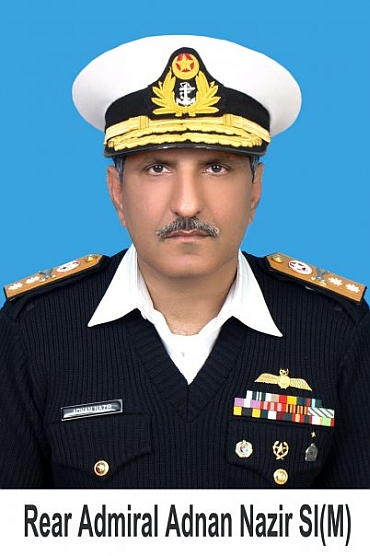
The commission also examined well-placed ISI officials more than once and their alleged harassment and intimidation of journalists was taken into serious account.
The ISI officers examined were Admiral Adnan Nazir, Brigadier Zahid Mehmood Khan, Naval Commodore Khalid Pervaiz and Brig Iftikhar Ahmad.
The former two were examined more than once while a majority of journalists who recorded their statements complained against Nazir. Therefore, the commission did not rule out the strong perception among the journalist community that the ISI harasses and intimidates journalists.
Rear Admiral Nazir was the most sought after ISI official by the journalists who had recorded their statements with the commission as everybody complained of him, including Hamid Mir, Absar Alam, Imtiaz Alam and others.
Imtiaz Alam's piece of advice [while making his statement before the commission] was quite plausible: "The ISI must deflate its larger-than-life image, focus on its mandated job and evolve a transparent policy in its relationship with the media. It should drastically rethink its media-engagement policy," he goes on, and "dispense with the army of pseudo-journalists that it keeps on its payroll and who have proved to be good for nothing", said the report.
"Although threats and acts of intimidation were denied by the ISI, yet from the statements of the above named, the commission cannot hold that their understanding and perception about the threats extended to them are misconceived, simply for the reason that it had been refuted by the ISI official," it said.
"When so many senior and respected journalists have come forward to record their perception, noted the commission, that they found certain words, gestures and acts of ISI officials as intimidating and threatening, then it is hard to dismiss it lightly, merely on account of a bald denial by ISI," the commission's report observed.
Keeping in view such harassment incidents, the five-member Judicial Commission recommended accountability of the agencies by bringing them under parliamentary oversight and taking such other measures.
...
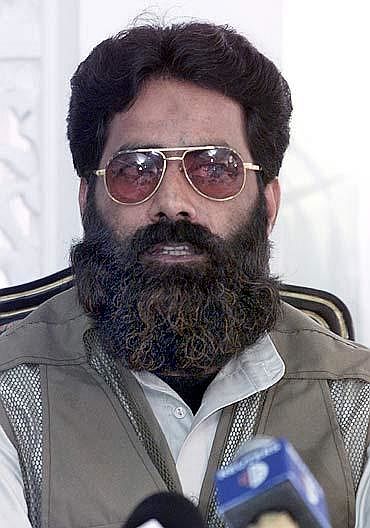
The commission also noted that the strong perception among the journalist community that the ISI has had a motive to kill Saleem may hold some weight, but there is no tangible evidence to establish that fact.
"The motive in law is not a substantive piece of evidence, but it can only be used in support of substantive evidence; motive is not an evidence of crime; at the best, it can corroborate the evidence of crime; that too, if there is direct, substantive, convincing and proved evidence."
The commission also noted with concern that the police while conducting preliminary investigation into Saleem's murder had not interrogated any of the ISI officials.
As for the role of terrorists in killings of Saleem is concerned, the commission agreed with the journalist community that the modus operandi was of intelligence agency, given the sophistication of the operation and experience of the journalist community.
However, in their testimonies before the commission, ISI officials built the case that Saleem was in fact killed by the Ilyas Kashmiri group of al-Qaeda since he was increasingly revealing their strategies and assets in his articles.
Some of the recorded conversations produced by the ISI lend suspicion of the murder towards Kashmiri, an al-Qaeda-linked pro-Kashmiri Pakistani militant commander who had once been interviewed by Saleem.
A recorded conversation played before the commission by the ISI indicated that Nawaz (a terrorist presently in Adiyala Jail and a Saleem source) spoke to a frontman of Kashmiri after his murder.
While Nawaz expressed sorrow over the killing of Saleem, Kashmiri's frontman cursed Saleem for the damage he had done to their network and remarked that a bad man had met his fate.
The commission, according to its report, verified the tape and voice testing conducted through the Punjab Police chief who confirmed that the voice of Nawaz, presently in Adiyala Jail, is genuine. It was also transpired through geo-fencing that Saleem interacted with one Qari Ismail, a Kashmiri aide, at his number who was in Islamabad on May 27, 2011.
...
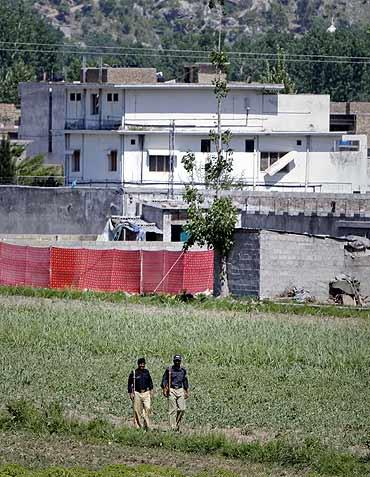
In his written statement to the commission, Brig Zahid Mehmood Khan of the ISI said that had "Saleem been threatened or coerced by the ISI, he would have broken all contacts and refused to interact anymore with the ISI, something he did not do."
In fact, the official said, Saleem had himself asked to have a cup of tea, and other rendezvous, with the same officials that, he alleged, had threatened him in the past.
He claimed that his last telephonic interaction with Saleem took place on May 2011, soon after the American operation in Abbottabad in which he was told the ISI Director General Lt Gen Ahmed Shuja Pasha had been wrongly quoted as saying that they were hands-in-glove in the Osama bin Laden raid.
In a bid to defame Saleem as a possible American agent, the ISI statement to the cmmission said: "Why in this case [after Saleem's murder] from President Obama to every man worth a name in the US felt disturbed. Was he a pawn who could be used at appropriate time to further use the US objectives and create a wedge between the establishment and other segments of society?"
Since no defamation of a journalist can be completed unless he is labeled as an Indian agent, Brig Zahid Mahmood of the ISI said in his statement: "Though I don't have any concrete evidence, but Saleem had stated in my presence that he was approached by Indian intelligence agency (Research and Analysis Wing) and now he has to present a paper in UK on which he wanted the input of the ISI."
According to the Brigadier, Saleem told him that he was in contact with the British intelligence agency.
While Pakistan's journalist community largely believes that the ISI was responsible for Saleem's brutal assassination, the commission cited lack of substantive piece of evidence to blame ISI officials for his horrific assassination.
"It does not allow us to safely conclude that the ISI was the culprit behind the incident", said the report. But it did recommend that "key intelligence agencies, especially the ISI and IB, be made more law-abiding through legislation by carefully outlining their respective mandates and role".
...
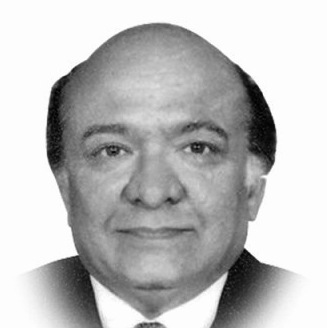
In a related development, the South Asian Free Media Association (Safma) has called for implementation of the recommendations made by the Saleem Commission.
Imtiaz Alam, the Safma secretary general, said in a press release that the commission has very rightly observed that "uncovering the truth before the public is very much in our national interest.
"In fact, the truth itself is in our national interest. As proposed by the commission, the Pakistani intelligence agencies should be made accountable at three levels: "within the agency and before the minister-in-charge, before the parliamentary committee (and thus the parliament and the public)" and before a judicial forum.
"Internationally-recognised standard operating procedures should be introduced for internal administrative accountability, keeping them away from such duties as press censorship, liaison with political parties and the conduct of foreign policy."
"Changing their work culture, as recommended by the Judicial Commission, agencies should be made accountable to the parliament", the Safma secretary general added.
...